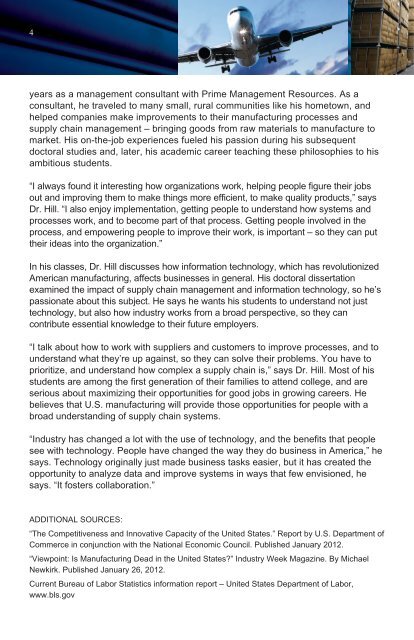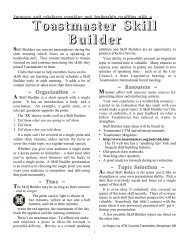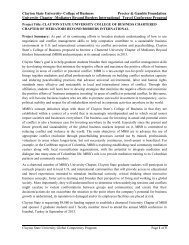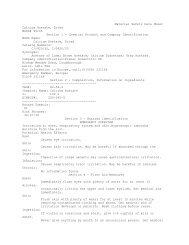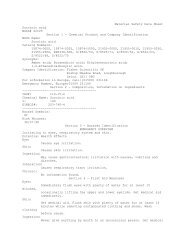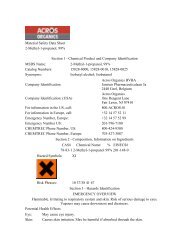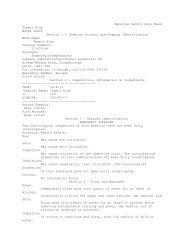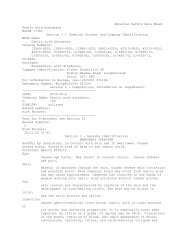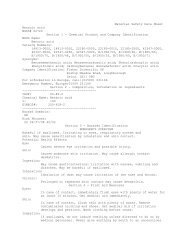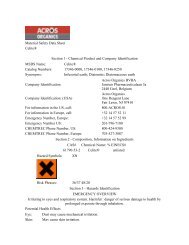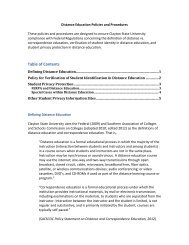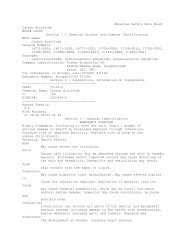Supply Chain Management Program - Clayton State University
Supply Chain Management Program - Clayton State University
Supply Chain Management Program - Clayton State University
Create successful ePaper yourself
Turn your PDF publications into a flip-book with our unique Google optimized e-Paper software.
4<br />
years as a management consultant with Prime <strong>Management</strong> Resources. As a<br />
consultant, he traveled to many small, rural communities like his hometown, and<br />
helped companies make improvements to their manufacturing processes and<br />
supply chain management – bringing goods from raw materials to manufacture to<br />
market. His on-the-job experiences fueled his passion during his subsequent<br />
doctoral studies and, later, his academic career teaching these philosophies to his<br />
ambitious students.<br />
“I always found it interesting how organizations work, helping people figure their jobs<br />
out and improving them to make things more efficient, to make quality products,” says<br />
Dr. Hill. “I also enjoy implementation, getting people to understand how systems and<br />
processes work, and to become part of that process. Getting people involved in the<br />
process, and empowering people to improve their work, is important – so they can put<br />
their ideas into the organization.”<br />
In his classes, Dr. Hill discusses how information technology, which has revolutionized<br />
American manufacturing, affects businesses in general. His doctoral dissertation<br />
examined the impact of supply chain management and information technology, so he’s<br />
passionate about this subject. He says he wants his students to understand not just<br />
technology, but also how industry works from a broad perspective, so they can<br />
contribute essential knowledge to their future employers.<br />
“I talk about how to work with suppliers and customers to improve processes, and to<br />
understand what they’re up against, so they can solve their problems. You have to<br />
prioritize, and understand how complex a supply chain is,” says Dr. Hill. Most of his<br />
students are among the first generation of their families to attend college, and are<br />
serious about maximizing their opportunities for good jobs in growing careers. He<br />
believes that U.S. manufacturing will provide those opportunities for people with a<br />
broad understanding of supply chain systems.<br />
“Industry has changed a lot with the use of technology, and the benefits that people<br />
see with technology. People have changed the way they do business in America,” he<br />
says. Technology originally just made business tasks easier, but it has created the<br />
opportunity to analyze data and improve systems in ways that few envisioned, he<br />
says. “It fosters collaboration.”<br />
ADDITIONAL SOURCES:<br />
“The Competitiveness and Innovative Capacity of the United <strong>State</strong>s.” Report by U.S. Department of<br />
Commerce in conjunction with the National Economic Council. Published January 2012.<br />
“Viewpoint: Is Manufacturing Dead in the United <strong>State</strong>s” Industry Week Magazine. By Michael<br />
Newkirk. Published January 26, 2012.<br />
Current Bureau of Labor Statistics information report – United <strong>State</strong>s Department of Labor,<br />
www.bls.gov


